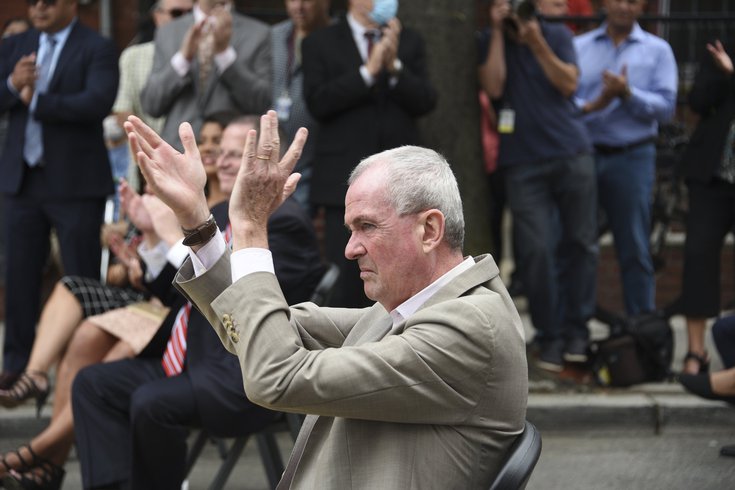
December 31, 2021
 NJOIT via NJ Governor's Office/Flickr
NJOIT via NJ Governor's Office/Flickr
New Jersey's eviction moratorium officially ends on January 1 amid an ongoing surge of COVID-19 cases. Above is Gov. Murphy in August, when he signed legislation to extend the moratorium for low-to-moderate income tenants who completed an income certification form.
As 2021 winds to a close, so will New Jersey's statewide eviction moratorium for tenants who have fallen behind on the rent. This safety measure was put in place during the early days of the COVID-19 pandemic back in March 2020, and later extended for some low-income tenants by Gov. Phil Murphy earlier in 2021.
The expiration of the emergency law coincides with the surge in COVID-19 cases in New Jersey.
Beginning on Jan. 1, landlords can pursue eviction for nonpayment of rent accrued before March 2020 and after Aug. 31, 2021, for any tenant, including low-income residents who have not completed an income self-certification form. The form provides additional eviction protection for tenants whose household incomes are less than 80% of their county's median.
For those who have already completed the form, landlords can pursue eviction for nonpayment of rent accrued before the pandemic or after Dec. 31.
A notice published by the Governor's office during the summer explains that the limitations on eviction going forward would be based on household income levels, including evictions for nonpayment of rent up until Dec. 31. For tenants whose households earn more than 80% of the median income level, the eviction moratorium expired on Aug. 31.
Though the eviction moratorium is ending, it is unclear how eviction court proceedings will go, as the courts have more than 50,000 landlord-tenant cases in their backlog as of the end of November.
Emergency protections related to the ongoing impacts of the COVID-19 pandemic are dwindling even as cases rise, though Murphy ended New Jersey's emergency declaration order in June after nearly a year and a half.
Residents in Burlington County can access their region's housing hub, which provides information for those faced with losing their homes and other hardships related to housing costs, including how to access affordable housing.
Camden residents can access a list of housing programs that can help with housing costs or or housing issues related to disabilities.
The Housing Authority of Gloucester County provides resources on affordable and public housing for those experiencing hardships related to housing costs.
Statewide, New Jersey has a variety of rental assistance resources available to both tenants and landlords through their 211 system, and through the state's Department of Community Affairs.